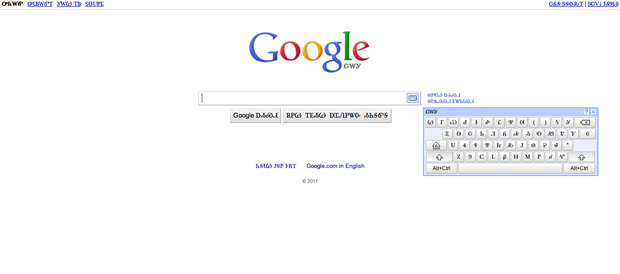“Technology has been one of the biggest drivers of new vocabulary for centuries” — Jesse Sheidlower, editor at large for the O.E.D.
The Internet’s importance as a preserver and driver of language use has been reinforced this week with two key symbolic developments.
The first is the news that the Internet-isms OMG, LOL and the usage of “heart” as a verb have made the Oxford English Dictionary, throwing purists into a tizzy, because basically people generally hate change (it took about fifteen years for people to finally accept that the doubled-up adjectival noun “web site” would inevitably become the all inclusive noun “website.” And it took the AP Stylebook about twenty to eventually join the two).
The second development is that you can now search Google in Cherokee; In an effort preserve the endangered language Google has partnered up with the 300,000 strong Cherokee Nation, adding the traditional language to its repertoire of 146 interface languages here.
Cherokee Chief Chad Smith explained the reason for the move poignantly, “We have been working hard to get our young people interested in learning our Native tongue but we cannot be successful unless they can read and write in the medium of their era – all the digital devices that are currently so popular.”
What’s notable about this is again the symbolism and the fact that the Internet has indeed become the linguistic medium of our era. If there’s a language that you can’t Google in, does it cease to exist?
